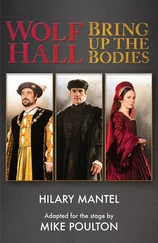Again, why do I call the Hôtel de Ville ‘City Hall’? In Britain, the term ‘Town Hall’ conjures up a picture of comfortable aldermen patting their paunches and talking about Christmas decorations or litter bins. I wanted to convey a more vital, American idea; power resides at City Hall.
A smaller point still: my characters have their dinner and their supper at variable times. The fashionable Parisian dined between three and five in the afternoon, and took supper at ten or eleven o’clock. But if the latter meal is attended with a degree of formality, I’ve called it ‘dinner’. On the whole, the people in this book keep late hours. If they’re doing something at three o’clock, it’s usually three in the morning.
I am very conscious that a novel is a cooperative effort, a joint venture between writer and reader. I purvey my own version of events, but facts change according to your viewpoint. Of course, my characters did not have the blessing of hindsight; they lived from day to day, as best they could. I am not trying to persuade my reader to view events in a particular way, or to draw any particular lessons from them. I have tried to write a novel that gives the reader scope to change opinions, change sympathies: a book that one can think and live inside. The reader may ask how to tell fact from fiction. A rough guide: anything that seems particularly unlikely is probably true.
PART I
In Guise:
Jean-Nicolas Desmoulins, a lawyer
Madeleine, his wife
Camille, his eldest son (b. 1760)
Elisabeth, his daughter
Henriette, his daughter (died aged nine)
Armand, his son
Anne-Clothilde, his daughter
Clément, his youngest son
Adrien de Viefville
Jean-Louis de Viefville} their snobbish relations
The Prince de Condé, premier nobleman of the district and a client of Jean-Nicolas Desmoulins
In Arcis-sur-Aube:
Marie-Madeleine Danton, a widow, who marries
Jean Recordain, an inventor
Georges-Jacques, her son (b. 1759)
Anne Madeleine, her daughter
Pierrette, her daughter
Marie-Cécile, her daughter, who becomes a nun
In Arras:
François de Robespierre, a lawyer
Maximilien, his son (b. 1758)
Charlotte, his daughter
Henriette, his daughter (died aged nineteen)
Augustin, his younger son
Jacqueline, his wife, née Carraut, who dies after giving birth to a fifth child
Grandfather Carraut, a brewer
Aunt Eulalie
Aunt Henriette} François de Robespierre’s sisters
In Paris, at Louis-le-Grand:
Father Poignard, the principal – a liberal minded man
Father Proyart, the deputy principal – not at all a liberal-minded man
Father Herivaux, a teacher of classical languages
Louis Suleau, a student
Stanislas Fréron, a very well-connected student, known as ‘Rabbit’
In Troyes:
Fabre d’Églantine, an unemployed genius
PART II
In Paris:
Maître Vinot, a lawyer in whose chambers Georges-Jacques Danton is a pupil
Maître Perrin, a lawyer in whose chambers Camille Desmoulins is a pupil
Jean-Marie Hérault de Séchelles, a young nobleman and legal dignitary
François-Jérôme Charpentier, a café owner and Inspector of Taxes
Angélique (Angelica) his Italian wife
Gabrielle, his daughter
Françoise-Julie Duhauttoir, Georges-Jacques Danton’s mistress
At the rue Condé:
Claude Duplessis, a senior civil servant
Annette, his wife
Adèle
Lucile} his daughters
Abbé Laudréville, Annette’s confessor, a go-between
In Guise:
Rose-Fleur Godard, Camille Desmoulins’s fiancée
In Arras:
Joseph Fouché, a teacher, Charlotte de Robespierre’s beau
Lazare Carnot, a military engineer, a friend of Maximilien de Robespierre
Anaïs Deshorties, a nice girl whose relatives want her to marry Maximilien de Robespierre
Louise de Kéralio, a novelist: who goes to Paris, marries François Robert and edits a newspaper
Hermann, a lawyer, a friend of Maximilien de Robespierre
The Orléanists:
Philippe, Duke of Orléans, cousin of King Louis XVI
Félicité de Genlis, an author – his ex-mistress, now Governor of his children
Charles-Alexis Brulard de Sillery, Comte de Genlis – Félicité’s husband, a former naval officer, a gambler
Pierre Choderlos de Laclos, a novelist, the Duke’s secretary
Agnès de Buffon, the Duke’s mistress
Grace Elliot, the Duke’s ex-mistress, a spy for the British Foreign Office
Axel von Fersen, the Queen’s lover
At Danton’s chambers:
Jules Paré, his clerk
François Deforgues, his clerk
Billaud-Varennes, his part-time clerk, a man of sour temperament
At the Cour du Commerce:
Mme Gély, who lives upstairs from Georges-Jacques and Gabrielle Danton
Antoine, her husband
Louise, her daughter
Catherine
Marie} the Dantons’ servants
Legendre, a master butcher, a neighbour of the Dantons
François Robert, a lecturer in law: marries Louise de Kéralio, opens a delicatessen, and later becomes a radical journalist
René Hébert, a theatre box-office clerk
Anne Théroigne, a singer
In the National Assembly:
Antoine Barnave, a deputy: at first a radical, later a royalist
Jérôme Pétion, a radical deputy, later called a ‘Brissotin’
Dr Guillotin, an expert on public health
Jean-Sylvain Bailly, an astronomer, later Mayor of Paris.
Honoré-Gabriel Riquetti, Comte de Mirabeau, a renegade aristocrat sitting for the Commons, or Third Estate
Teutch, Mirabeau’s valet
Clavière
Dumont
Duroveray} His ‘slaves’, Genevan politicans in exile
Jean-Pierre Brissot, a journalist
Momoro, a printer
Réveillon, owner of a wallpaper factory
Hanriot, owner of a saltpetre works
De Launay, Governor of the Bastille
PART III
M. Soulès, temporary Governor of the Bastille
The Marquis de Lafayette, Commander of the National Guard
Jean-Paul Marat, a journalist, editor of the People’s Friend
Arthur Dillon, Governor of Tobago and a general in the French army; a friend of Camille Desmoulins
Louis-Sébastien Mercier, a well-known author
Collot d’Herbois, a playwright
Father Pancemont, a truculent priest
Father Bérardier, a gullible priest
Caroline Rémy, an actress
Père Duchesne, a furnace-maker: fictitious alter ego of René. Hébert, box-office clerk turned journalist
Antoine Saint-Just, a disaffected poet, acquainted with or related to Camille Desmoulins
Jean-Marie Roland, an elderly ex-civil servant
Manon Roland, his young wife, a writer
François-Léonard Buzot, a deputy, member of the Jacobin Club and friend of the Rolands
Jean-Baptiste Louvet, a novelist, Jacobin, friend of the Rolands
PART IV
At the rue Saint-Honoré:
Maurice Duplay, a master carpenter
Françoise Duplay, his wife
Eléonore, an art student, his eldest daughter
Victoire, his daughter
Elisabeth (Babette), his youngest daughter
Charles Dumouriez, a general, sometime Foreign Minister
Antoine Fouquier-Tinville, a lawyer; Camille Desmoulins’s cousin
Jeanette, the Desmoulins’s servant
PART V
Politicians described as ‘Brissotins’ or ‘Girondins’:
Jean-Pierre Brissot, a journalist
Jean-Marie and Manon Roland
Pierre Vergniaud, member of the National Convention, famous as an orator
Jérôme Pétion
François-Léonard Buzot
Jean-Baptiste Louvet
Charles Barbaroux, a lawyer from Marseille and many others
Albertine Marat, Marat’s sister
Simone Evrard, Marat’s common-law wife
Читать дальше












